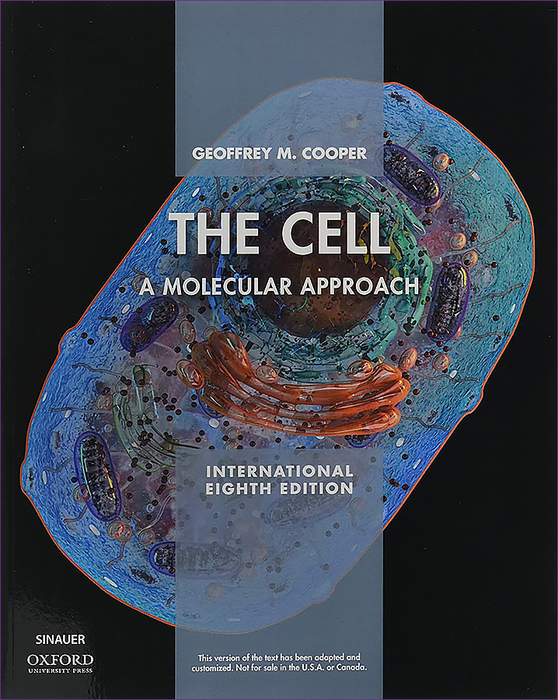The Cell: A Molecular Approach 8/e 2020
The Cell: A Molecular Approach 8/e 2020-需求單
團購另有優惠
內容簡介
Even the most experienced instructor can find teaching cell biology daunting, and most cell biology texts are bogged down in detail or background information. Lost in all the details are the more fascinating material and contemporary advances that represent this rapidly moving field. With so much to cover, creating a classroom around active learning may be difficult or nearly impossible.
The Cell: A Molecular Approach endeavors to address those issues with succinct writing, incorporation of current research, a test bank that encourages critical thinking, and an active learning framework.
With just enough detail for a one-semester, junior level course, the text presents fundamental concepts and current research, including chapters on genomics and transcriptional regulation and epigenetics, and new in-text boxed features on molecular medicine and key experiments. For instructors who want to flip their classrooms or just get students more engaged, The Cell: A Molecular Approach is the only cell biology text that is accompanied by an Active Learning Guide. This chapter-by-chapter playbook shows instructors how to create a dynamic learning environment with in-class exercises, clicker questions, and links to relevant media, animations, testing, and self-quizzing, all aligned with the new in-text learning objectives, wherever appropriate.
This text provides the right level of detail, student engagement, and instructor support for the modern cell biology classroom.
作者簡介
Geoffrey M. Cooper is Professor Emeritus of Biology at Boston University. Receiving a Ph.D. in Biochemistry from the University of Miami in 1973, he pursued postdoctoral work with Howard Temin at the University of Wisconsin, where he developed gene transfer assays to characterize the proviral DNAs of Rous sarcoma virus and related retroviruses. He then joined the faculty of Dana-Farber Cancer Institute and Harvard Medical School in 1975, where he pioneered the discovery of oncogenes in human cancers. Since moving to Boston University in 1998, he has served as Chair of Biology and Associate Dean of the Faculty for Natural Sciences, as well as teaching undergraduate cell biology and continuing his research on the roles of oncogenes in the signaling pathways that regulate cell proliferation and programmed cell death. He has authored over 100 research papers, two textbooks on cancer and an award-winning novel, The Prize, dealing with fraud in medical research.
目次
Part I: Fundamentals and Foundations
Chapter 1. Introduction to Cells and Cell Research
Chapter 2. Molecules and Membranes
Chapter 3. Bioenergetics and Metabolism
Chapter 4. Fundamentals of Molecular Biology
Chapter 5. Genomics, Proteomics, and Systems Biology
Part II: The Flow of Genetic Information
Chapter 6. Genes and Genomes
Chapter 7. Replication, Maintenance, and Rearrangements of Genomic DNA
Chapter 8. RNA Synthesis and Processing
Chapter 9. Transcriptional Regulation and Epigenetics
Chapter 10. Protein Synthesis, Processing, and Regulation
Part III: Cell Structure and Function
Chapter 11. The Nucleus
Chapter 12. Protein Sorting and Transport
Chapter 13. Mitochondria, Chloroplasts, and Peroxisomes
Chapter 14. The Cytoskeleton and Cell Movement
Chapter 15. The Plasma Membrane
Chapter 16. Cell Walls, the Extracellular Matrix, and Cell Interactions
Part IV: Cell Regulation
Chapter 17. Cell Signaling
Chapter 18. The Cell Cycle
Chapter 19. Cell Renewal and Cell Death
Chapter 20. Cancer

